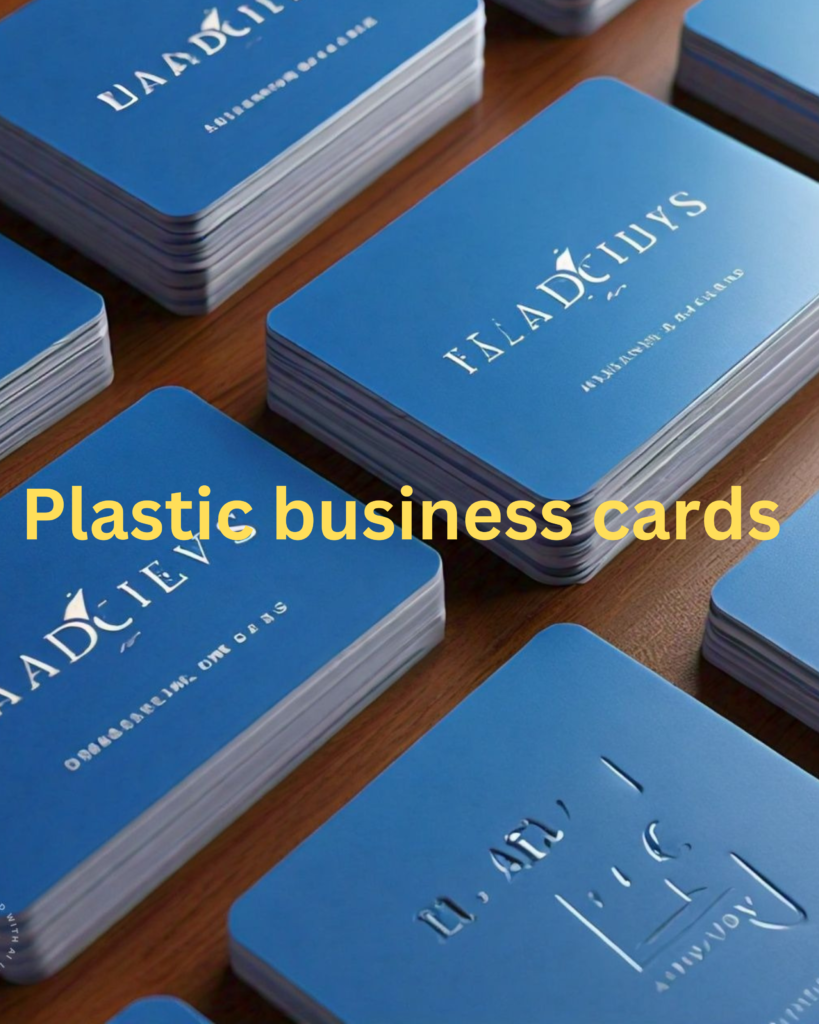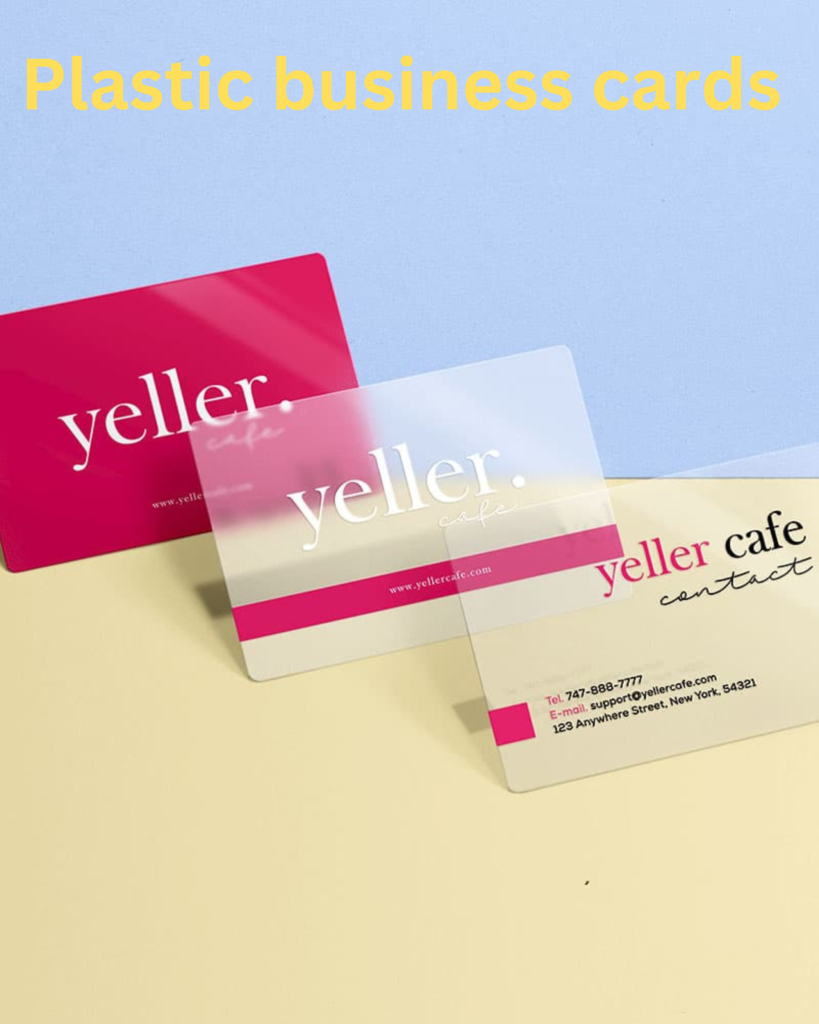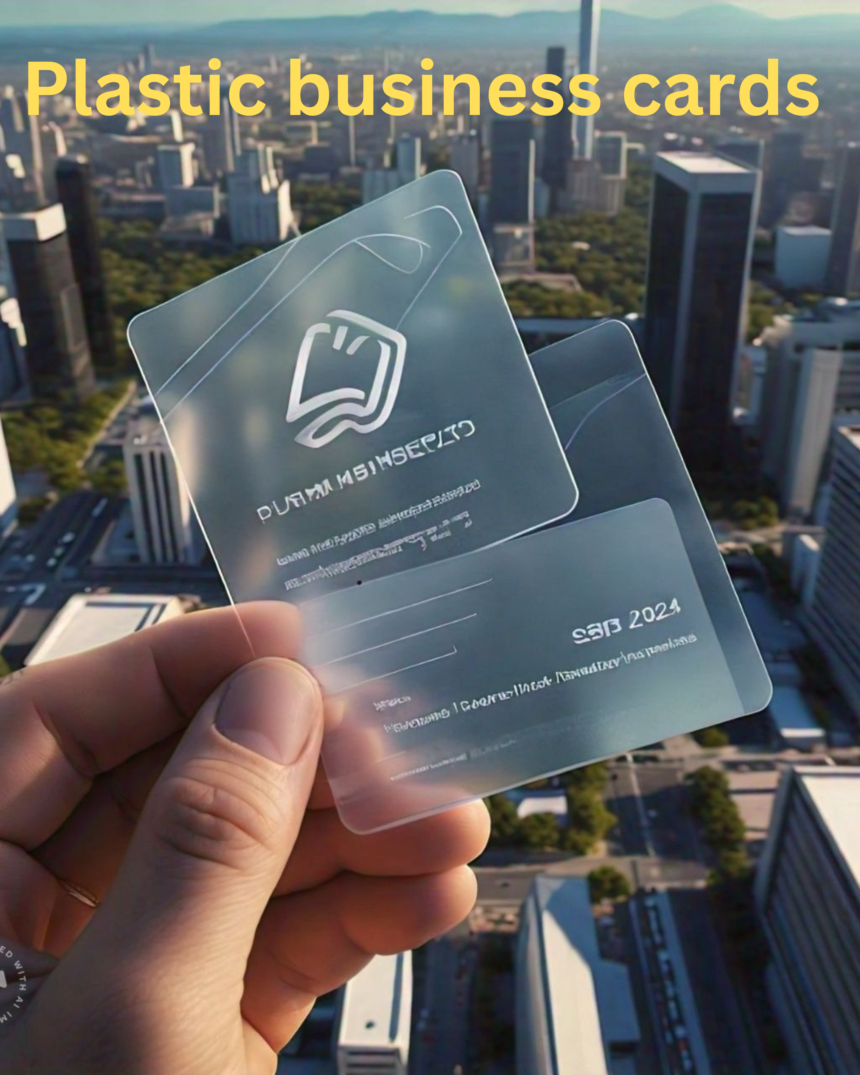In the fast-evolving world of business networking, the humble business card has undergone a significant transformation. In 2024, plastic business cards are emerging as a popular choice among professionals looking to make a lasting impression. These sleek, durable cards boast a modern aesthetic and promise to elevate personal branding to new heights. However, as with many trends, the rise of plastic business cards has sparked a debate: Are they an innovative marketing tool that sets you apart, or are they an unnecessary environmental burden that contradicts growing sustainability efforts?
The Appeal of Plastic Business Cards: Durability and Design
Plastic business cards offer several advantages over their traditional paper counterparts, making them an attractive option for many professionals. Unlike paper cards, which can easily tear, crease, or become damaged by moisture, plastic cards are designed to withstand wear and tear. This durability ensures that the card remains in pristine condition long after it is handed out, potentially keeping the card—and the brand it represents—in circulation for longer periods.
Additionally, plastic business cards provide a unique tactile experience. The sleek, glossy finish of a plastic card can convey a sense of professionalism and quality that is often associated with high-end brands. This perception can be further enhanced by various customization options. From transparent and frosted designs to metallic finishes and vibrant colors, plastic business cards can be tailored to reflect a brand’s identity and values more distinctively than standard paper cards.
Another appeal of plastic business cards is their ability to incorporate modern technologies. Many plastic cards now come embedded with NFC (Near Field Communication) chips, allowing for seamless digital interactions. With a simple tap, recipients can access digital portfolios, websites, or contact information directly on their smartphones. This feature not only adds a layer of interactivity but also aligns with the growing trend of integrating digital and physical marketing efforts.

The Case Against Plastic: Environmental Impact and Perception
Despite their innovative features, plastic business cards are not without their critics. In an era where environmental consciousness is increasingly becoming a business priority, the use of plastic is a significant concern. Most plastic business cards are made from PVC (polyvinyl chloride), a type of plastic that is not biodegradable and can contribute to long-term environmental pollution. As businesses and consumers become more aware of the need to reduce their carbon footprint, the use of non-recyclable materials like PVC is seen as a step backward in the fight against environmental degradation.
The environmental concerns surrounding plastic business cards are not limited to their disposal. The production process for plastic cards is more resource-intensive than that of paper cards, involving the extraction of raw materials, the use of toxic chemicals, and a higher energy consumption rate. These factors contribute to a larger overall carbon footprint, making plastic business cards a less sustainable choice.
Furthermore, the perception of plastic business cards can vary greatly depending on the recipient. While some may view them as a mark of modernity and professionalism, others might perceive them as wasteful or environmentally irresponsible. This perception is particularly important for businesses that prioritize sustainability in their branding. Using plastic cards could potentially contradict their message and alienate environmentally conscious clients or partners.

The Middle Ground: Balancing Innovation and Sustainability
Given the pros and cons of plastic business cards, is there a way to strike a balance between innovation and sustainability? Some companies are exploring alternative materials that offer the durability of plastic without the environmental drawbacks. For example, recycled plastics and biodegradable options are becoming more widely available, providing a more eco-friendly alternative to traditional PVC cards. These options allow businesses to maintain the modern appeal and functionality of plastic while minimizing their environmental impact.
Another approach is to use plastic business cards strategically. Rather than using them as the default option for all networking needs, businesses can reserve plastic cards for high-impact situations where a lasting impression is crucial. This selective use reduces the number of plastic cards in circulation, thereby minimizing waste. Additionally, businesses can pair their physical cards with digital counterparts, encouraging recipients to store contact information digitally and reduce reliance on physical cards altogether.
Trends in 2024: The Future of Business Cards
In 2024, the future of business cards is undoubtedly evolving, with both physical and digital options coexisting in the professional landscape. The rise of plastic business cards reflects a broader trend toward personalization and innovation in marketing materials. As businesses continue to look for ways to differentiate themselves, unique materials like plastic offer a way to stand out from the crowd.
However, this trend also highlights the need for businesses to consider the environmental implications of their choices. In a world increasingly driven by sustainability, finding ways to innovate without compromising on eco-friendly values is essential. Businesses that can navigate this delicate balance will be well-positioned to appeal to modern consumers who prioritize both quality and responsibility.

Conclusion: A Choice Between Innovation and Responsibility
Ultimately, the decision to use plastic business cards boils down to a choice between innovation and environmental responsibility. For some, the benefits of durability, unique design options, and technological integration make plastic business cards an effective marketing tool that can help their brand stand out in a crowded marketplace. For others, the environmental concerns and potential negative perceptions outweigh the benefits, leading them to seek more sustainable alternatives.
As we move further into 2024, businesses will need to carefully consider their options and align their choice of business cards with their broader values and goals. Whether opting for innovative plastic cards, sustainable alternatives, or a blend of both, the key is to ensure that the choice reflects the brand’s identity and resonates with its target audience. By doing so, businesses can make a lasting impression—one that is both memorable and responsible.
